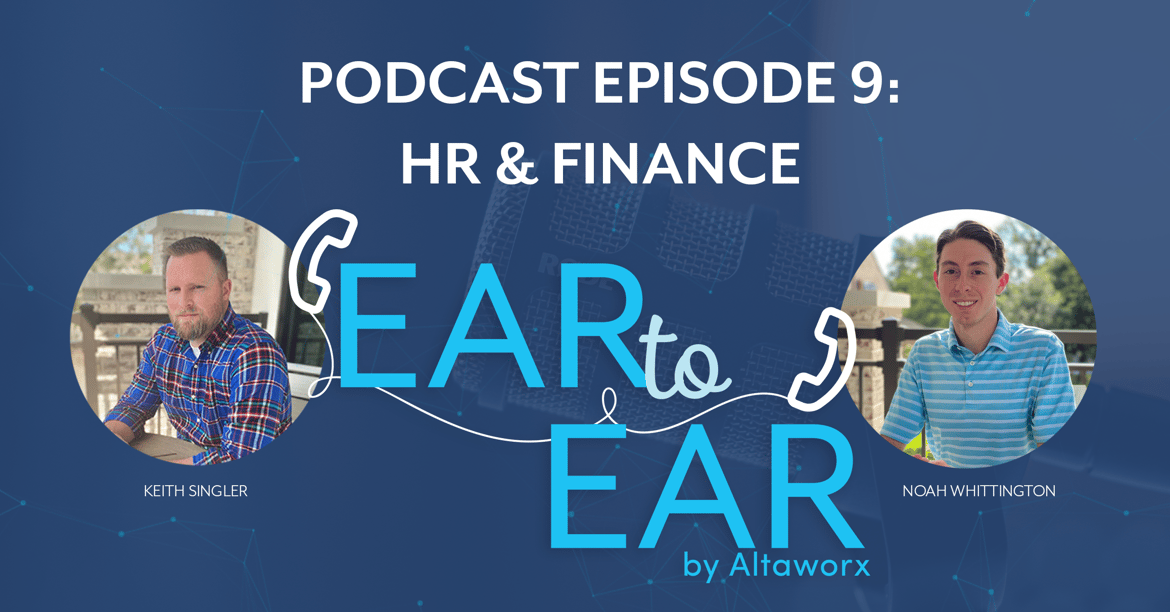Ear To Ear Podcast | EPISODE 9: HR & Finance
Dial into this episode with Keith Singler, EVP of Revenue Operations, and our guest Noah Whittington, Finance Controller. This exciting episode delves into the intersection of HR and Finance, as Noah and Keith share their insights and experiences on working together in these key areas of the business.
As the Finance Controller at Altaworx, Noah discusses how aligning HR and Finance can lead to better decision-making and strategic planning within the organization. Keith, on the other hand, provides a unique perspective from this role because he was the previous leader of those departments, highlighting the importance of collaboration and synergy between these two positions.
Whether you're an HR professional, a finance enthusiast, or simply curious about the inner workings of a successful business, this episode is a must-listen. By joining this episode, you'll gain valuable insights into how HR and Finance can work hand in hand to drive organizational success. Noah and Keith offer practical tips and strategies for streamlining processes, optimizing resource allocation, and maximizing the overall performance of the company. Tune in now and learn how the powerful combination of HR and Finance can elevate your organization to new heights.
And if you're hungry for more knowledge and want to explore the tools and resources offered at Altaworx, don't hesitate to reach out to us at revops@altaworx.com. Our team is dedicated to providing you with the support and guidance needed to thrive in the ever-evolving business landscape.
Learn more: www.altaworx.com
Contact us: revops@altaworx.com
with industry experts like Noah Whittington and Keith Singler, make sure to connect with them on LinkedIn.
Connect with Noah Whittington on LinkedIn
Connect with Keith Singler on LinkedIn
No video selected
Select a video type in the sidebar.































